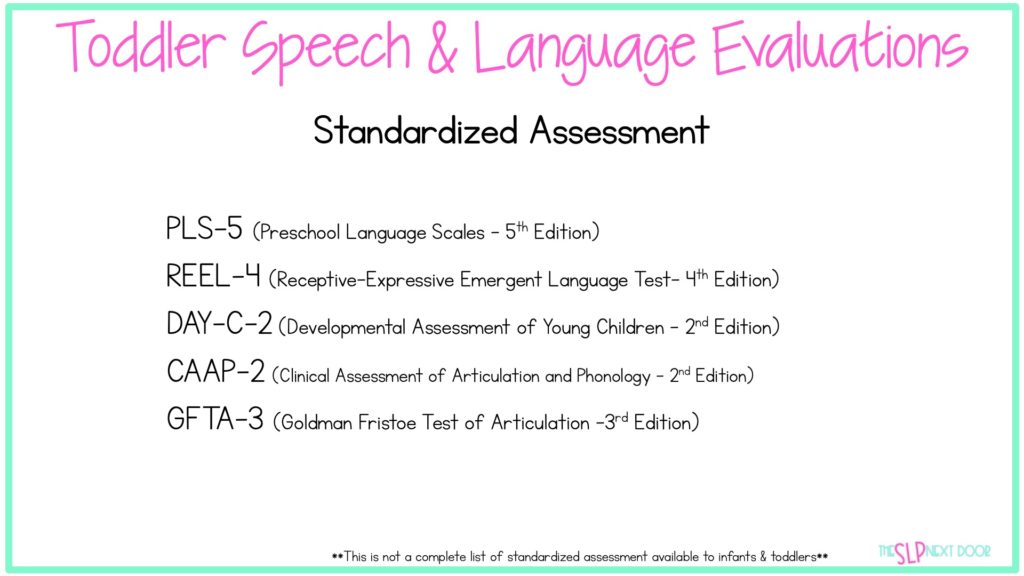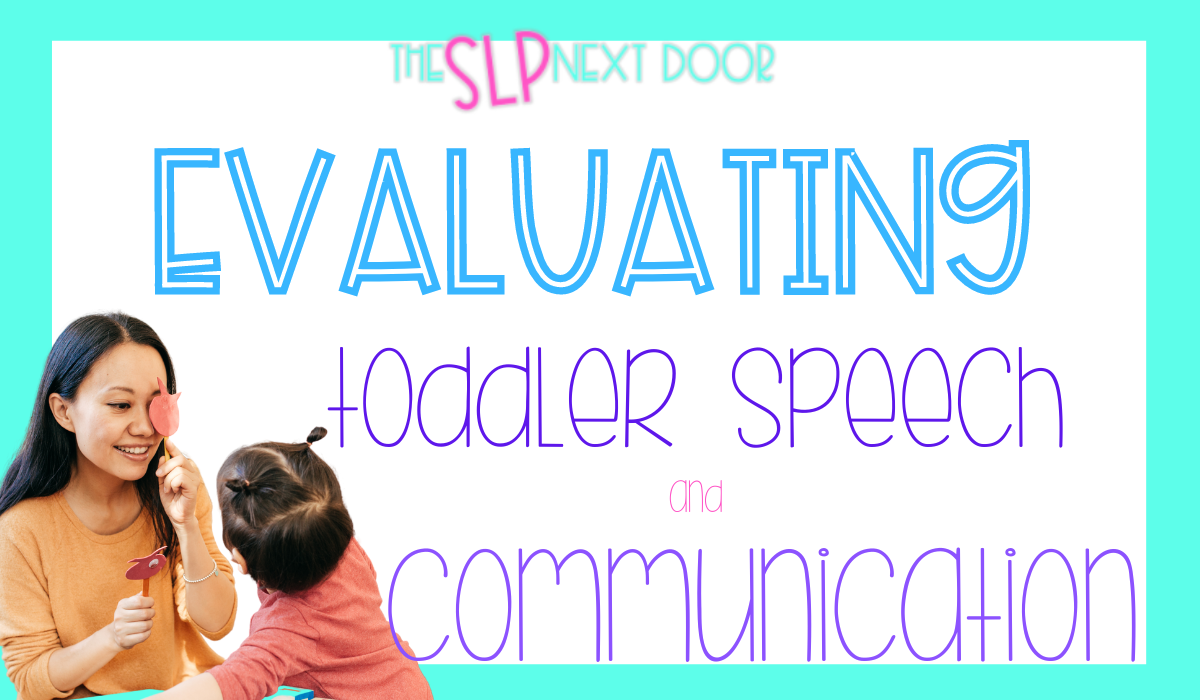Evaluating toddler speech can feel intimidating … but it doesn’t have to be! Let’s talk about what happens when evaluating toddlers for speech therapy services.
Toddler Parent Concerns
I always tell parents: evaluating toddler speech is never a bad idea! Anytime you have concerns with your toddler’s communication development, seek out an evaluation from a speech language pathologist. If your toddler’s development is normal, you’ll determine strengths and weaknesses. Alternatively, if your toddler does end up qualifying for speech therapy, you’ll be able to determine goals for speech therapy!
Patient History
The first thing you’re going to do when evaluating toddler speech: take a patient history. List any medical conditions, situations with birth, any concerns during or following pregnancy, developmental concerns, milestone markers, other medical conditions- it might seem a little invasive but learning this information is important because it can have an impact on their current abilities.
Hearing & Vision
Next, you’re going to want to ask about any concerns with hearing or vision. If hearing concerns are reported – has a hearing evaluation been conducted or is it scheduled? In a perfect world, hearing evaluations are completed before speech evaluations are done… but we don’t live in a perfect world and sometimes we just have to roll with it. There are ways to informally assess hearing. Be sure to make a note of any hearing concerns in the evaluation report and conduct the remainder of your assessment accordingly!
The same goes for vision, any concerns with vision should be documented and move forward with the speech evaluation accordingly.
Prior Speech Therapy
Prior Speech Therapy. Why is this important? If previous therapy services ended because of difficulties with therapist and client (it’s okay, it happens!) that might have an impact on services beginning with you. So keep that in mind when approaching the little one and conducting the evaluation.
Standardized Testing
Standardized Assessments- some of the more common assessments used when evaluating toddler speech include:

But what happens when a toddler doesn’t participate in the standardized assessment?!
We go informal!
Informal Assessments
Observation is probably going to be your most commonly used informal assessment when it comes to this population. Observation can be done in a natural environment and is a way to assess toddler skills while they interact with someone familiar (parents, siblings, favorite toys, etc.) Other options for informal assessments include: The Functional Communication Profile-Revised (FCP-R), Developmental Milestone Checklists, and using testing protocols.
What are we looking for, anyways?
Developmental milestones. Where is the toddler? You’re going to look at: development of fine motor skills, cognitive skills, pre-linguistic skills, and language development. Notice one aspect that is not included in this list? Speech intelligibility. Before you can target any sort of intelligibility issues, language and motor development must be assessed. These two areas will have a significant impact on intelligibility and you might need to address them before moving into articulation/phonology.
Check out this post for more information about toddler talking.
Looking for more information about toddler communication? Be sure to grab my FREE Toddler Toolbox– the ultimate guide to jumpstarting communication with toddlers!


